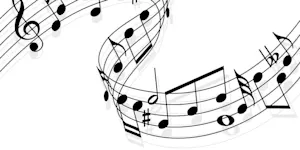What Makes This Word Tick
"Umbrage" is a delightful word that serves up a slice of vintage English attitude. It typically means taking offense or feeling resentment. Imagine a Victorian gentleman with an impeccably curled mustache, suddenly lifting his monocle in affront — that's umbrage for you!
If Umbrage Were a Person…
Imagine Umbrage as someone who values politeness and decorum. Perhaps a retired English professor who treasures the subtle art of wit. They’d raise an eyebrow at anything too crude or direct, preferring the nuanced takedown over the outright brawl.
How This Word Has Changed Over Time
Originally hailing from the Latin "umbra," meaning shadow, umbrage has shifted from physical to emotional shadows. It once referred more broadly to anything casting a shadow or suspicion, suggesting a veil of doubt under which offense might brew.
Old Sayings and Proverbs That Use Umbrage
Though not bursting with proverbs, umbrage comfortably sits in expressions about taking offense. You might hear someone say, "don't stand in umbrage," urging you to stay sunny side up and avoid unnecessary sulking.
Surprising Facts About Umbrage
Here’s a fun tidbit: "umbrage" isn’t just about taking offense — some naturalists might use it when referring to the shade of trees. This dual meaning gives it a charming depth, making it as versatile as an old-timey suitcase.
Out and About With This Word
In casual conversation, umbrage might not pop up daily, unless you're at Downton Abbey. It's more at home in literary circles, or perhaps when someone wants to playfully highlight feeling slighted in a genteel company.
Pop Culture Moments Where Umbrage Was Used
While "umbrage" hasn’t been the shining star in many cinematic dialogues, it gets a nod whenever someone channels their inner dignified character, raising an eyebrow and feigning insult for comedic effect.
The Word in Literature
"Umbrage" has found its groove in literary circles, particularly in novels with intricate social dynamics. Think of Jane Austen landscapes where characters navigate the delicate dance of etiquette, where one might huff and puff about a spoken slight.
Moments in History with Umbrage
Picture the Boston Tea Party, where colonists took umbrage at British taxation without representation. It’s a prime example where the nation rounded up its collective umbrage and tossed it into the harbor.
This Word Around the World
In France, "ombrage" conveys a similar shadowy feel, often linked to suspicion or jealousy. Across the globe, variations of umbrage reflect a universal notion of the tiny cloud that hovers after one feels slighted or insulted.
Where Does It Come From?
"Umbrage" traces back to the Middle French word "ombrage," ultimately stemming from the Latin "umbra," meaning shade or shadow. Over time, it’s taken a meandering path from real shadows to metaphorical ones.
How People Misuse This Word
At times, people confuse "umbrage" with "umbrageous," which means easily offended — a subtle difference but worth noting. It can also mistakenly get plopped into sentences where general anger is meant instead of specific offense.
Words It’s Often Confused With
Umbrageous: Suggestive of someone easily offended, rather than the act of taking offense.
Outrage: More intense and broad than umbrage, often linked to stronger and more public discontent.
Shade: While also stemming from "umbra," shade is more about cool relief than hot indignation.
Additional Synonyms and Antonyms
Synonyms for umbrage include offense, resentment, and indignation, while its antonyms would be calmness, contentment, and delight.
Want to Try It Out in a Sentence?
"Gerald took umbrage at the newcomer’s disregard for dress codes, silently fuming over his morning coffee as he contemplated the decline of sartorial standards."
















